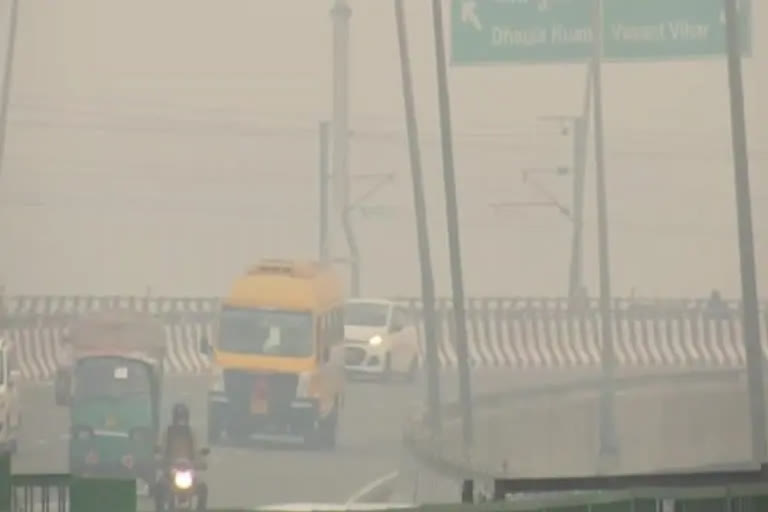New Delhi: As the continuous air pollution has created a massive hue and cry across India, the World Health Organisation (WHO) has said that toxic air reduce lung growth and function among children whereas ischemic heart disease and stroke are the most common cause of premature death among adults.
Talking to ETV Bharat, Dr Jayesh M Lele, secretary general of Indian Medical Association (IMA), has said that air pollution has become a consistent health hazard. "All categories of people are prone to air pollution. It creates serious lung problem among children and also cause other health issues for adults," said Dr Lele.
He said that high air pollution can aggravate cardiovascular and respiratory illness. "Persistent exposure to polluted air can decrease lung capacity. Development of asthema, bronchitis are some of the common health hazards caused by air pollution," added Dr Lele.
According to WHO, exposure to air pollution is estimated to cause seven million premature deaths and result in the loss of millions more health years of life every year. "In children, this could include reduced lung growth and function, respiratory infection and aggravated asthma. In adults, ischaemic heart disease and stroke are the most common causes of premature death attributed to outdoor air pollution, and evidence is also emerging of other effects such as diabetes and neurodegenerative conditions," the WHO said.
Significantly, government statistics in possession of ETV Bharat said that Maharashtra with 18 cities top the list of States having maximum polluted cities followed by Uttar Pradesh (16) and Andhra Pradesh(13). Along with cities in Maharashtra like Chandrapur, Aurangabad, Pune, Thane and Mumbai among others are the most pollutant.
A senior government official said that ranking of cities based on air quality is not done due to complexity of various parameters and their influence on the air quality of individual cities.
"The central pollution control board (CPCB) has identified 124 non-attainment cities (NACs), cities exceeding annual national ambient air quality standards with respect to any of the notified parameters for consecutively for five years," the official said. The Central government has launched National Clean Air Programme (NCAP) as a long term, time-bound national level strategy to tackle the air pollution problem across India in a comprehensive manner with targets to achieve 20 to 30 percent reduction in particulate matter concentrations by 2024.
Sharing his views on this issue, renowned environmentalist Anil Sood said that air gets polluted through various factors. He ruled out that stubble burning is the only major cause of air pollution in States like Delhi, Haryana, Punjab and Uttar Pradesh. "Pollution is generated not only through stubble burning. As many as three studies conducted this year has said that daily 3 million times of CO2 is generated by stubble burning across States like Haryana, Punjab, Delhi and UP. These studies said that three million tonnes of CO2 sprinkled by aviation on cities having airports. Coal-based power plant are also sprinkling huge CO2 which has not been assessed. While Railways with diesel locomotive have also not made any norms to assess the situation," Sood added.
He suggested that both the Central and state governments should come together and adopt a holistic approach for a resolution of the burning issue of air pollution.



